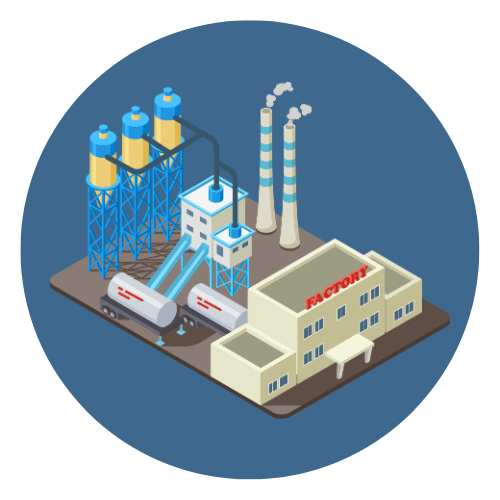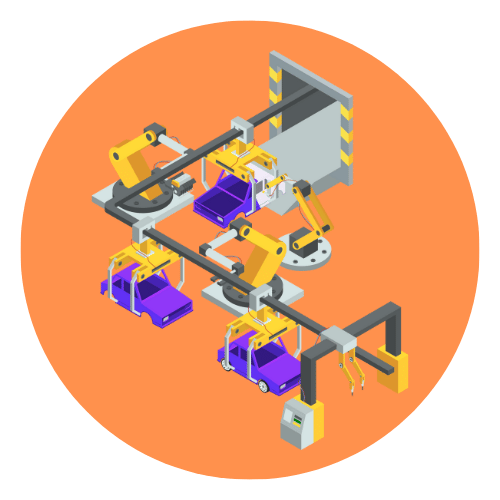Mechanical Engineering
Welcome to Mechanical Engineering
Mechanical engineering is a diverse and dynamic field that involves the application of physics, mathematics, and materials science to design, analyze, manufacture, and maintain mechanical systems. It is one of the oldest and broadest branches of engineering, providing a critical foundation for modern technology and industry.
Core Areas of Mechanical Engineering
- Thermodynamics and Heat Transfer: This area focuses on the principles of energy conversion and the transfer of heat. It includes the study of engines, power plants, refrigeration, and air conditioning systems.
- Fluid Mechanics: Fluid mechanics deals with the behavior of fluids (liquids and gases) and their interactions with solid boundaries. Applications include aerodynamics, hydraulics, and the design of pipelines and pumps.
- Mechanics of Materials: This area examines the behavior of solid materials under various forms of stress and strain. It is essential for understanding material properties, failure mechanisms, and the design of load-bearing structures.
- Dynamics and Control: Dynamics involves the study of motion and the forces that cause it, while control systems focus on designing systems that maintain desired performance despite external disturbances. Applications range from vehicle dynamics to robotic systems.
- Manufacturing and Production: This area covers the processes and techniques used to produce mechanical components and systems. It includes machining, welding, casting, and additive manufacturing (3D printing).
- Design and Innovation: Mechanical engineers are often involved in the conceptualization, design, and development of new products and systems. This includes everything from small components to large-scale machinery and infrastructure projects.
Applications of Mechanical Engineering
Mechanical engineering is crucial in various industries, including:
- Automotive: Design and manufacturing of vehicles, engines, and related systems.
- Aerospace: Development of aircraft, spacecraft, and propulsion systems.
- Energy: Design and optimization of renewable and non-renewable energy systems.
- Manufacturing: Automation, robotics, and production line optimization.
- Biomedical: Development of medical devices, prosthetics, and diagnostic equipment.
- Construction: Design of HVAC systems, elevators, and other building infrastructure.
The Future of Mechanical Engineering
The field of mechanical engineering continues to evolve with advancements in technology. Emerging areas include:
- Sustainable Engineering: Focus on environmentally friendly technologies and renewable energy sources.
- Nanotechnology: Design and manipulation of materials at the molecular level for advanced applications.
- Mechatronics: Integration of mechanical, electronic, and computer engineering for the development of intelligent systems and robots.
- Additive Manufacturing: Continued development and application of 3D printing techniques.
Conclusion
Mechanical engineering is a vital and ever-evolving field that plays a crucial role in the advancement of technology and industry. With its wide range of applications and continuous innovation, mechanical engineering offers numerous opportunities for aspiring engineers to make significant contributions to society.
Benefits of Mechanical Engineering
Mechanical engineering offers numerous benefits that impact society, industry, and the environment. Here are some key benefits:
Societal Benefits
- Improved Quality of Life: Mechanical engineering innovations lead to the development of essential products and systems that enhance daily life, such as transportation vehicles, household appliances, and healthcare devices.
- Healthcare Advances: Mechanical engineers design and develop medical devices, prosthetics, and diagnostic equipment, significantly improving patient care and outcomes.
- Safety Enhancements: Through rigorous testing and design improvements, mechanical engineers contribute to safer products, machinery, and infrastructure, reducing the risk of accidents and injuries.
Industrial Benefits
- Efficiency and Productivity: Mechanical engineers optimize manufacturing processes, leading to increased efficiency and productivity in various industries. This includes automation, robotics, and lean manufacturing techniques.
- Innovation and Development: Mechanical engineering drives innovation, leading to the development of new technologies and products that keep industries competitive and relevant.
- Cost Reduction: By improving design and manufacturing processes, mechanical engineers help reduce production costs, leading to more affordable products and services.
Environmental Benefits
- Sustainable Solutions: Mechanical engineers develop environmentally friendly technologies and renewable energy systems, contributing to sustainable development and reducing the environmental impact of industrial activities.
- Energy Efficiency: Innovations in thermodynamics and heat transfer lead to more efficient energy systems, reducing energy consumption and greenhouse gas emissions.
- Waste Reduction: Mechanical engineering advancements in manufacturing processes minimize waste production and promote recycling and reuse of materials.
Technological Benefits
- Advanced Materials: Mechanical engineers research and develop new materials with enhanced properties, enabling the creation of more durable, lightweight, and high-performance products.
- Precision and Accuracy: Innovations in mechanics and control systems result in highly precise and accurate machinery and equipment, essential for industries such as aerospace, automotive, and electronics.
- Integration of Technologies: Mechanical engineering often intersects with other fields, such as electrical and computer engineering, leading to the development of integrated systems and mechatronics.
Economic Benefits
- Job Creation: Mechanical engineering is a significant contributor to job creation, providing employment opportunities in various sectors, from research and development to manufacturing and maintenance.
- Economic Growth: Innovations and improvements in mechanical engineering drive economic growth by enabling new industries, enhancing existing ones, and increasing overall productivity.
- Global Competitiveness: Countries with strong mechanical engineering sectors are better positioned to compete globally, attracting investments and fostering economic stability.
Conclusion
Mechanical engineering offers a wide range of benefits that positively impact society, industry, the environment, technology, and the economy. Through continuous innovation and the development of sustainable solutions, mechanical engineering plays a crucial role in shaping a better future for all.


 Automation System
Automation System  Energy Engineeing
Energy Engineeing  Instrumentation System
Instrumentation System  Mechanical Engineeing
Mechanical Engineeing  Piping Technologies
Piping Technologies  Transportations
Transportations  Manufacturing
Manufacturing  Training Material
Training Material 
















































